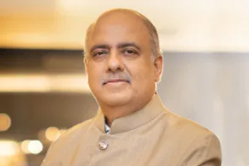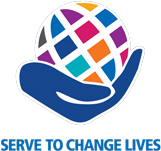
Greetings, my dear changemakers. I am sure you are having an enriching experience as you Serve to Change Lives. One of the ways you can make the greatest change in a person’s life is to help them learn to read. Literacy opens up the world to us. It makes us better informed about life in our own communities and opens vistas to other cultures. Reading and writing connects people and gives us another way to express our love for one another.
September is Basic Education and Literacy Month in Rotary. Enhancing literacy skills is critical in our pursuit of reducing poverty, improving health and promoting peace. In fact, if all students in low-income countries left school with basic reading skills, it would result in a significant cut in global poverty rates.
Without education, illiterate children become illiterate adults. Today, 14 per cent of the world’s adult population — 762 million people — lack basic reading and writing skills. Two-thirds of that group are women. Literacy and numeracy skills are essential to obtain better housing, healthcare and jobs over a lifetime.
Especially for girls and women, literacy can be a life-or-death issue. If all girls completed their primary education, there would be far fewer maternal deaths. And a child is more likely to survive past age 5 if he or she is born to a mother who can read. Improving outcomes for more people worldwide is possible only if countries remove barriers to education for girls. The economic argument for doing so is clear: In some countries where schooling is geared toward boys, the cost of missed economic opportunity is more than $1 billion per year.
Empowering people through education is among the boldest goals we have as Rotarians. We don’t have to travel far from our homes to encounter those whose lives are being curtailed because they struggle with reading, rely on others to read for them, or cannot write anything more than their own name.
Starting this month, consider how your club can Serve to Change Lives through literacy: Support local organisations that offer free programmes to support adult literacy or local language learning, or that provide teachers with professional development centred around reading and writing. Become literacy mentors, or work with an organisation like the Global Partnership for Education to increase learning opportunities for children around the world. Have conversations with local schools and libraries to see how your club can support their existing programmes or help create needed ones in your community.
In India, the TEACH programme, a successful collaboration between the country’s Rotary clubs and its government, has demonstrated how to scale up literacy efforts to reach millions of children. And at a time when schools across India were closed due to the Covid-19 pandemic, the programme’s e-learning component reached more than 100 million children through national television.
Literacy is the first step out of poverty. As Nobel laureate Malala Yousafzai has noted, “One child, one teacher, one book, and one pen can change the world.”






